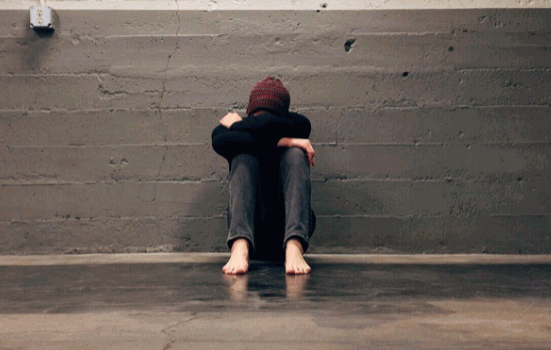Mental health problems are quite possibly the greatest figure whether somebody will foster a substance use disorder. Concentrates on show that about a portion of individuals with substance use issues have a co-happening emotional wellness issue, and a few evaluations are significantly higher. The associations between dysfunctional behavior and substance use are mind boggling.
Frequently, the psychological well-being issue starts things out, and the substance use issue starts as self-drug. Notwithstanding, substance use can likewise cause psychological well-being issues or exacerbate existing emotional well-being. At times, both substance use issues and psychological wellness issues might step from a typical reason. It’s critical that anybody looking for help for substance misuse is likewise evaluated for a co-happening psychological wellness issue. On the off chance that there is a co-happening issue, it should be dealt with simultaneously for habit recuperation to find success. That implies finding a treatment program with the offices and staff to address a double determination.
Significant Depression
Significant misery is one of the most widely recognized emotional wellness issues in the US, and it’s the main source of handicap around the world. In the previous year, in excess of seven percent of American grown-ups and in excess of 13% of teenagers somewhere in the range of 12 and 17 encountered an episode of significant sadness. Sadly, many individuals with sorrow don’t get treatment or even a conclusion. Around 35% of grown-ups and 60 percent of teenagers never get treatment for their downturn.
If you are also among those with substance abuse problems and have insurance programs like Cigna Health Insurance, then you can start the treatment process without worrying about the cost.
In addition to the fact that depression is normal, paces of habit are a lot higher among individuals with despondency. One investigation discovered that among individuals with significant despondency, 16.5 percent had a liquor use confusion and 18 percent had a medication use jumble. By examination, around 10% of the overall population will have substance use issues sooner or later in their lives.
Bipolar Disorder
Albeit bipolar disorder is viewed as a burdensome problem, it merits unique notice since it is a particularly tremendous gamble factor for habit. The very concentrate on that found raised substance use among individuals with gloom found that individuals with bipolar confusion had a 56 percent chance of fostering a substance use jumble sooner or later in their lives. This might be on the grounds that individuals with bipolar confusion need to manage the close to home agony of burdensome episodes and with the high-risk, unpredictable way of behaving of hyper episodes. Having said this, getting timely treatment for dual diagnosis is very crucial, if you have insurance programs then it can be easier for you to get the care you need.
Uneasiness Disorders
Uneasiness problems are much more normal than significant discouragement since nervousness problems involve various issues, including summed up tension turmoil, social tension problem, alarm jumble, fears, over the top enthusiastic issue, or OCD, and post-horrendous pressure problem, or PTSD. These circumstances increment your fixation hazard to various degrees.
One huge investigation discovered that 17.7 percent of individuals with substance use problems likewise had a nervousness issue and that study avoided OCD and PTSD. Furthermore, research has found that tension issues go before substance use problems in around 75% of cases, showing that substance use frequently starts as a method of self-sedating nervousness.
PTSD
In spite of the fact that PTSD is actually a nervousness problem, it merits unique notice since it fundamentally expands your gamble of dependence. Side effects of PTSD incorporate bad dreams or flashbacks of the awful mishap, staying away from considerations or tokens of the occasion, becoming negative or skeptical, becoming bad tempered or effortlessly surprised, or experiencing difficulty resting. Adapting to these side effects is undeniably challenging and individuals with PTSD frequently resort to medications or liquor. About a portion of individuals looking for therapy for a substance use jumble meet the measures for current PTSD and PTSD can confound therapy as victims will generally encounter more powerful desires and more regular backslides.
ADHD
ADHD is a condition described by dashing contemplations, fretfulness, and hasty way of behaving. Individuals with ADHD have the twofold test of requiring help from their side effects and being inclined to high-gamble with conduct, for example, substance use. One investigation discovered that around 15% of grown-ups with ADHD had some sort of substance use issue and that 70% of those individuals utilized medications or liquor to adapt to the side effects of ADHD, including low mind-set, a sleeping disorder, and dashing contemplations.
Approximately four percent of kids and grown-ups have ADHD, and the condition is frequently underdiagnosed in young ladies and ladies. Fortunately controlling ADHD with prescription makes recuperation from enslavement a lot simpler.
Behavioral Conditions
Behavioral conditions are a class of issues in view of having an unbending or contorted approach to seeing the world. Behavioral conditions hugely increment your gamble of fostering a substance use jumble. Investigations have discovered that individuals with behavioral conditions might have a lifetime hazard of enslavement as high as 72%.
Marginal behavioral condition is among the most widely recognized and furthermore has the second-most elevated chance of compulsion. The behavioral condition with the most noteworthy gamble of fixation is total disregard for other people yet individuals with that condition seldom look for treatment and seldom finish treatment when they in all actuality do look for it. Despite the fact that behavioral conditions are perplexing and testing, persuasive conduct treatment, or DBT, has been demonstrated to be a successful technique for treating marginal behavioral conditions and other testing conditions including addiction.

